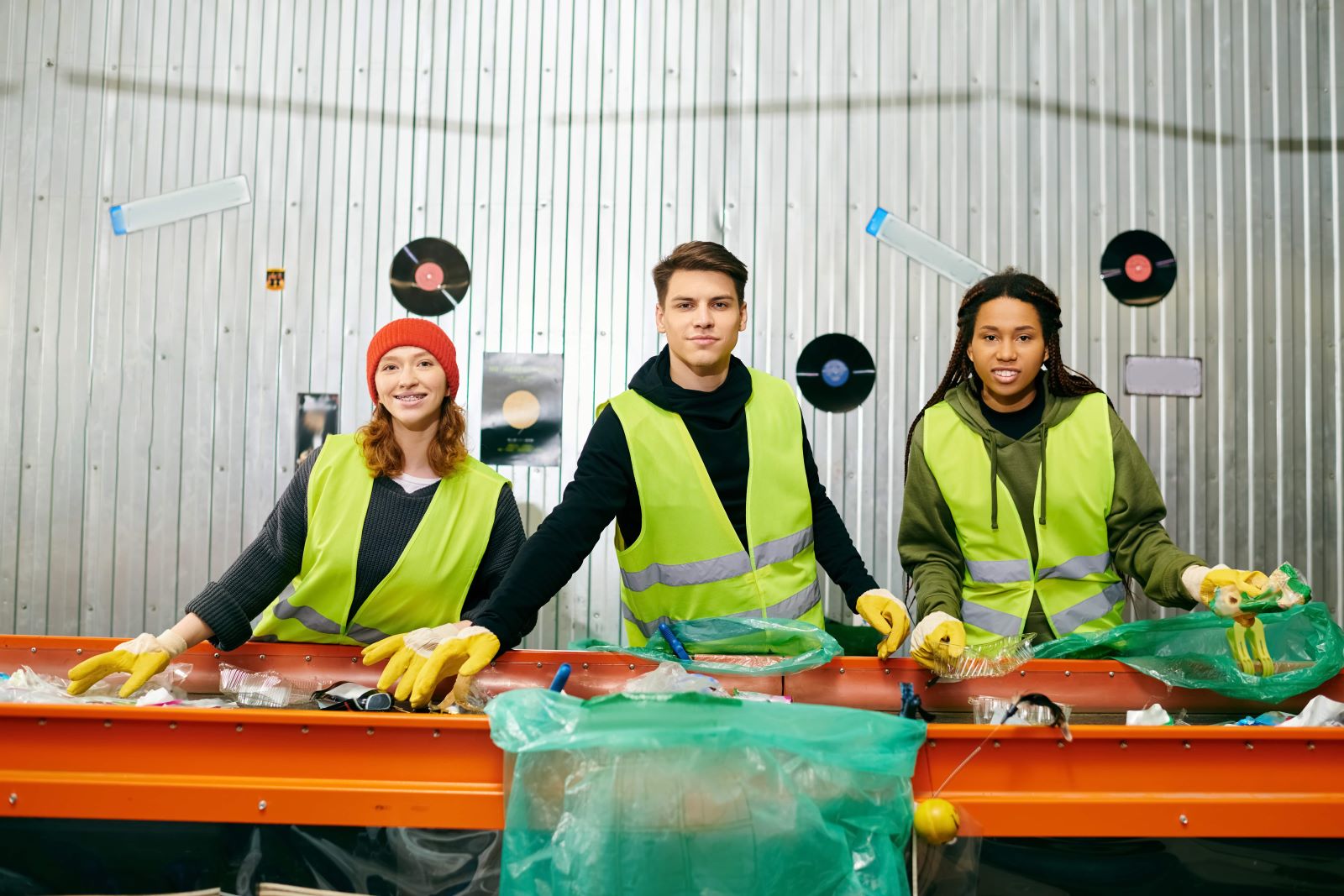Waste Management FAQ
Municipal Solid Waste (MSW) refers to everyday items discarded by the public. These include household waste, packaging, food scraps, yard clippings, furniture, clothing, and other non-hazardous materials. Proper management of MSW is crucial to minimise environmental impact and promote recycling and reuse.
Construction and Demolition (C&D) Waste encompasses materials generated during building, renovating, or demolishing structures. This includes concrete, wood, metals, glass, and insulation. Efficient management of C&D waste involves recycling and reusing materials to reduce landfill use and conserve resources.
Household Hazardous Waste (HHW) consists of products containing hazardous chemicals commonly found in homes. Examples include batteries, pesticides, paint, and cleaning products. Proper disposal of HHW is essential to prevent environmental contamination and protect public health.
Bulky waste refers to large items that are difficult to handle through regular waste collection processes. Examples include furniture, mattresses, appliances, and large branches. Proper management of bulky waste is essential to prevent illegal dumping and ensure that these items are recycled or disposed of correctly. Specialised collection services and recycling programs can help manage bulky waste effectively.
E-Waste, or electronic waste, includes discarded electronic devices such as computers, televisions, and mobile phones. These items contain hazardous substances like lead and mercury, making proper recycling and disposal crucial to avoid environmental harm and recover valuable materials.
Organic waste includes materials that come from plants or animals and are biodegradable. Common examples are food scraps, yard trimmings, and paper products. Managing organic waste effectively is crucial because it can decompose and produce methane, a potent greenhouse gas. By composting or recycling organic waste, we can reduce its environmental impact and create valuable byproducts like compost or biogas.
Composting is the process of breaking down organic waste into a nutrient-rich soil amendment called compost. This is achieved through natural decomposition by microorganisms under controlled conditions. Composting reduces the volume of waste sent to landfills, lowers greenhouse gas emissions, and produces a valuable product that can enhance soil health and fertility. It’s an essential practice for sustainable waste management.
Recyclables are materials that can be processed and transformed into new products. Common recyclables include paper, cardboard, glass, metals, and certain plastics. Recycling helps conserve natural resources, reduce landfill waste, and lower greenhouse gas emissions.
Single-stream recycling is a system where all recyclable materials are placed in a single bin by the consumer, rather than being sorted by type. This makes recycling more convenient and can increase participation rates. However, it also requires advanced sorting facilities to separate the mixed materials efficiently. While single-stream recycling simplifies the collection process, it’s important to ensure that the quality of the recyclables remains high to maximise the environmental benefits.
Downcycling is the process of recycling materials into products of lower quality and functionality. For example, plastic bottles can be downcycled into lower-grade plastic products. While downcycling extends the life of materials, it eventually leads to waste that cannot be recycled further.
Upcycling involves creatively reusing waste materials to create products of higher value or quality. For example, turning old wooden pallets into furniture. Upcycling reduces waste, conserves resources, and promotes innovative and sustainable practices.
Closed-Loop Recycling is a sustainable process where materials are continuously recycled into the same product without degradation in quality. An example is aluminium cans being recycled into new aluminium cans. This process reduces resource extraction and environmental impact.
A landfill is a designated site for the disposal of waste by burying it. Landfills are engineered to minimise environmental impact, but they can still produce greenhouse gases and leachate, which can contaminate soil and water. Effective waste management strategies aim to reduce landfill use.
Incineration is the process of burning waste at high temperatures to reduce its volume and produce energy. While incineration can decrease the amount of waste sent to landfills, it can also generate air pollution and requires careful management to minimise environmental impact.
Leachate is the liquid that drains or ‘leaches’ from a landfill, containing various dissolved or suspended materials. It results from rainwater percolating through waste materials. Leachate can be highly polluted and poses a significant threat to groundwater and surface water if not properly managed. Modern landfills employ liners and leachate collection systems to prevent contamination and protect the environment.
Waste-to-Energy (WTE) is a process that converts waste materials into energy, such as electricity or heat. This is achieved through incineration, gasification, or anaerobic digestion. WTE helps reduce landfill waste and generate renewable energy, contributing to a more sustainable waste management system.
A Circular Economy is an economic system aimed at minimising waste and making the most of resources. This approach emphasises reusing, repairing, refurbishing, and recycling existing materials and products. A Circular Economy reduces the need for new resources and lowers environmental impact.
A Life Cycle Assessment (LCA) is a systematic analysis of the environmental impacts of a product or process throughout its entire life cycle, from raw material extraction to disposal. LCA helps identify opportunities for reducing environmental impact and improving sustainability in waste management practices.
By understanding these key concepts, individuals and organisations can make informed decisions to enhance waste management practices and contribute to a more sustainable future. Join us in taking action today to create a cleaner and greener tomorrow!







